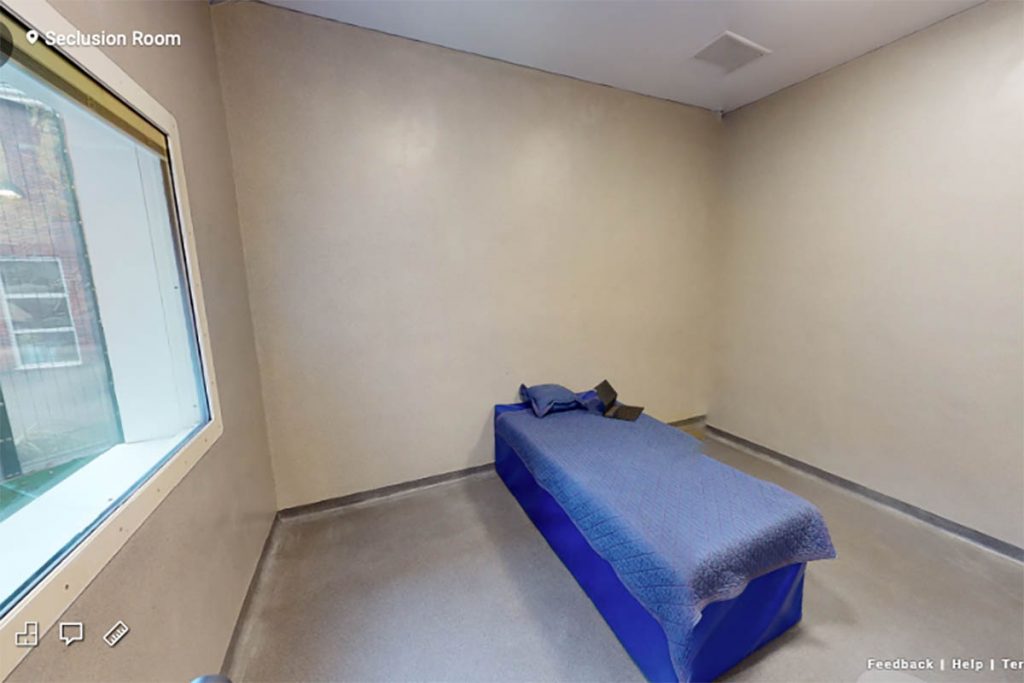
Social Work Recap is a weekly series where we present key news, events, conversations, tweets and campaigns around social work from the preceding week.
From the missed opportunities that led to devastating first few months of the pandemic for social care to the true cost of the shortage in secure accommodation for children with complex needs, here’s what you might have missed this week in social work:
Unaddressed weaknesses left social care ill-prepared for Covid, study finds

(credit: dontree / Adobe Stock)
The government missed opportunities to prepare the social care sector for a pandemic in the years before Covid, a review has found.
The two-year study, led by the Nuffield Trust and the London School of Economics, concluded that a lack of representation in government, along with poor funding, workforce conditions and infrastructure, the immense challenges social care faced in responding to the pandemic.
This saw 20,000 care home residents die in the first three months of the pandemic, inadequate access to personal protective equipment and many people left without adequate support due to the lockdown-induced closure of services.
The sector was excluded from cross-government pandemic-planning testing and, even after exercises that did include the sector identified some issues, no action was taken, the study found.
“The fragmented nature of the system and a shortage of civil servants working on social care contributed to confusion over who was responsible for decisions and implementation in the Covid-19 response,” said the review report.
“Had the sector had the tools it needed then some of the confusion and delays that led to so much distress and heartbreak could have been avoided,” Natasha Curry, the study’s co-lead and the Nuffield Trust’s deputy director of policy, told The Guardian.
PAs’ high caseloads leaving care leavers without emotional support, says report

Photo: motortion/Adobe Stock
Personal advisers’ (PAs) high caseloads are reducing their ability to provide emotional support for carers, a study has concluded.
Support for care leavers’ emotional wellbeing also varied widely across the five English councils studied, found the research by What Works for Early Intervention and Children’s Social Care.
None of the local authorities collected data to monitor the support they provided, amid a wider lack of evidence on the effectiveness of mental health support for care leavers
Care leavers’ access to wellbeing support was hindered by high thresholds for acceptance, practical barriers, such as the location of services, and a lack of consideration for diversity, the care leaver experience and internalised stigma.
While PAs’ relationships with care leavers were critical to the support they received, the study found these were hampered by practitioners’ high caseloads.
In its recommendations, What Works called for PAs’ capacity to support care leavers to be increased, including through training and reduced caseloads.
It also urged the government to support councils to improve the diversity and consistency of the support they provided.
Must Listen: ‘Children locked away: Britain’s modern bedlam’

Photo by Tortoise
Vulnerable children with complex needs are waiting for months, or even years, for a secure children’s home placement, an investigation has found.
News organisation Tortoise found that children waited an average of two and a half months for a secure bed, in the two years to March 2023.
Of the 50 authorities to respond to Tortoise’s freedom of information request, nine had average waits of at least six months.

Photo by Tortoise/NHS
Some councils told Tortoise that the wait was so long that they simply “gave up”.
The shortage of secure beds has forced councils to, increasingly, seek the High Court’s permission to place children in unregistered – and therefore illegal – settings through so-called deprivation of liberty orders. The Tortoise investigation, which is available as a podcast, found 40 councils were paying at least £10,000 a week for such accommodation for individual children.
The investigation was prompted by the recent case of a 12-year-old girl from Staffordshire, who had attempted to take her own life several times. Due to the severe shortage of secure accommodation in England, the girl, known as Becky, had been placed in isolation in a hospital room for eight weeks and fed through a hatch on the door.
Those supporting Becky had called the accommodation “unsuitable” and “actively damaging”.
Among two other stories explored in the podcast was that of Child X, the subject of a 2017 judgment concerning her need for a secure mental health bed after several suicide attempts. Six years on, aged 22, she is detained under the Mental Health Act in Rampton, one of the England and Wales’s three high security hospitals, found journalist Louise Tickle.
You can listen to the full episode here if you are a Tortoise member or, otherwise, wherever you get your podcasts.
Must Watch 1: Here I am – Leah
Children’s charity Bernardo’s has produced a thought-provoking and emotional short film based on the experiences of young people it supports.
The five-minute video puts the viewer in the shoes of Leah, a 14-year-old girl whose story encapsulates those of various vulnerable young people, and offers a glimpse into child sexual exploitation and how difficult it can be to turn to adults for help.
Must Watch 2: Kids – Channel 4

Photo by Channel 4
Channel 4’s new docuseries, Kids, offers viewers an unfiltered glimpse into the experiences of six young people in care in Coventry.
The first episode follows 19-year-old Annabelle and 17-year-old Xorin. Annabelle, who was pregnant during filming, said she was determined to “break the cycle of care” that saw her taken away from her parents when she was five.
Xorin, who had been exploited by a gang as a child, was seen transitioning back home after three years away and multiple placements.
The episode started with Kayleigh, a therapist from Coventry’s reunification project, making a visit to Xorin’s mum, Kelly, to help with the transition. However, when interviewed, Kelly admitted that, after having a series of practitioners come in and out of her home over many years, trust was hard to establish.
“I need to see her say what she’s going to do before I trust her or even like her. I need to see people’s words meet their actions,” she added.
You can watch episode one here.
Tweet of the Week:
As a baby, I was abandoned and left to die. After hearing my cries, neighbours called the police. I recovered in hospital from malnutrition, dehydration.
1/5
— Fatima Whitbread (@FatimaWh1tbread) May 15, 2023
Former world javelin champion Fatima Whitbread will be running from 15 to 18 May in support of charity The Fostering Network’s ‘Foster Care Fortnight’, which aims to raise awareness for foster care and its impact on young people in need of a home.
In a series of tweets, Fatima shared her own story of being fostered and the motivation behind her support for the campaign.
Do you want to share your views and reflections on social work with fellow practitioners by writing for us? Check out our guidelines page for information on how to share your ideas.




 Family help: one local authority’s experience of the model
Family help: one local authority’s experience of the model  ‘I spent the first three months listening’: how supportive leadership can transform children’s services
‘I spent the first three months listening’: how supportive leadership can transform children’s services  How senior leaders in one authority maintain a culture of excellence
How senior leaders in one authority maintain a culture of excellence  How staff support ensures fantastic outcomes for children and families
How staff support ensures fantastic outcomes for children and families  Workforce Insights – showcasing a selection of the sector’s top recruiters
Workforce Insights – showcasing a selection of the sector’s top recruiters 

 Facebook
Facebook X
X LinkedIn
LinkedIn Instagram
Instagram
[…] A piece about how long waits for secure care are harming children – https://www.communitycare.co.uk/2023/05/18/social-work-recap-how-long-waits-for-secure-care-are-harm… […]